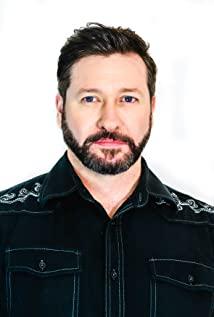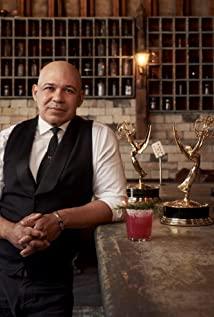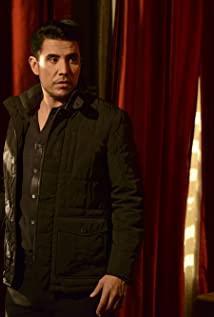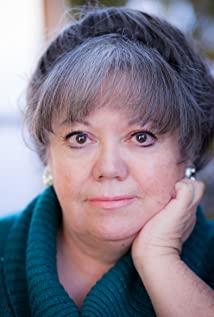1. The 3rd time is a bit different. I watched "Border Slayer 1" again last night. It's already the 3rd time. I haven't read the movie review before, maybe I want to understand this movie by myself. The previous 2 times, my state was similar to that of the heroine, I was stunned throughout the whole process, and at the end of the film, when the heroine understood, I was still stunned (this child's IQ is worrying). This time, I repeatedly watched the last dialogue between Matt and the heroine. The original words are as follows: Matt: You went into the wrong tunnel, you saw something you shouldn't have seen. Hostess: What is Medellin? Matt: What is Medellin? Medellín is an era where one group rules all business so that we can control their order too. Unless someone can convince our 20% of addicts to stop smoking this shit. Order is the best situation. What you see is Alejandro's efforts to restore that order. Hostess: Alessandro is a member of the Colombian drug syndicate. He is our opponent (referring to the FBI's opponent, the drug dealer). Smile... Matt: Alejandro can do anything for anyone, as long as that person can help him kill his enemy (the original subtitle was who made him), we, Colombian drug dealers. That way he could take revenge on the man who beheaded his wife and threw her daughter into a barrel of sulfuric acid. Hostess: Stunned expression (feeling frightened) Matt: Yeah! Our opponent is such a person. Hostess: You can't do that. you can not. You don't want me to cover it up for you. Matt: You take a good breath. Hostess: I will tell people. Matt: No, you won't. Hostess: I will. I'm going to tell everyone what you did. Matt: That was a huge mistake. ——The line of demarcation———— This dialogue is very informative, let us clear it up bit by bit. 2. The heroine said that he is our opponent's man. The implication is that the FBI's goal is to eliminate drug dealers and drugs in the United States, while the CIA is cooperating with drug dealers. From a realistic point of view, there are 20% of addicts in the United States (the U.S. population is 327 million in 2020, and the number of addicts is about 65.4 million, I don’t know if the data is accurate). It is unrealistic, and the drug prohibition leads to the scarcity of drugs, which makes them expensive, and there will be sellers who make huge profits, and there will always be people who take the risk of beheading. What the FBI is going through is fighting these doomed drug dealers. 3. Is the CIA's approach appropriate? Should we just let the drug trade be free because it's destined to exist? Obviously not. The normal practice should be to fight drugs with the FBI, and at the same time promote the anti-drug fashion among the American people, and slowly reduce the number of people who smoke "tattered", the demand will decrease, and the sellers will also decrease. But there is another problem. If there is only one big drug syndicate, the CIA controls him, such as the former Medellin (how to control it, I don't know. What does "control" mean? What are the benefits of controlling him? What?), leaving these issues aside, let’s assume it’s good for America to control him. So now the big one no longer exists, and it is split into several small ones, which is difficult for the CIA to control? Is it these little drug cartels that don't want to be controlled? Since the big ones can be controlled, the small ones should be easier to control? In the play, what the Matts (CIA troops) do is to use Alejandro to get rid of one of the small Mexican drug cartel Sonora, which is actually mutual use, or cooperation. 4. What exactly does control mean? What good is it to have control of a big drug cartel (like Medellin)? What's the downside? The control I guess may be to allow big drug cartels to sell drugs in the United States, but to pay taxes (to whom? Can the non-addicted people in the United States agree to this?), while other smuggling is not allowed (that is, the amount should be allowed by the CIA know or control). I think the reason why Medellin is willing to cooperate may be a decision after weighing, that is, to reduce the casualties, risks, and costs of its own personnel. But it always felt weird. The original goal of the CIA should be to slowly eliminate drug dealers and drugs with the FBI, including anti-drug propaganda, but in this way, if this tax is handed over to the CIA, will the CIA still have the motivation to eliminate drug dealers and drugs? Would it be a hindrance instead? ——Separation line———— 5. Re-understanding Good and Evil This movie caused some shocks in my view of good and evil. Sometimes it is difficult to tell whether it is good or evil, such as the CIA controlling a big drug dealer. Drugs are absolutely evil, addictive, expensive, financially exhausting, and can lead addicts to commit crimes to make money, as well as insane and criminal behavior. Originally, this kind of thing should be absolutely and continuously attacked, but because of the actual situation, as analyzed above, it may not be the best way to directly force it (it is destined that many police officers and detectives will not be eliminated), control the big drug cartel (or called cooperation) seems to be more feasible. But can the non-addicted American population (80%) agree to this? As a result, the tax may be secretly handed over to the CIA, but after taking this tax, who will supervise the CIA not to deteriorate? Supervise him to continue to move towards the goal of eliminating drug dealers and drugs eventually?
View more about Sicario reviews











